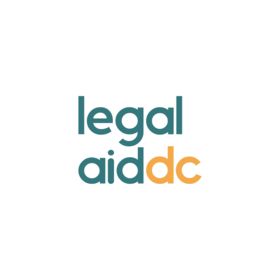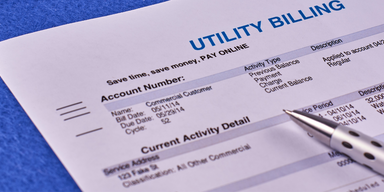Washington, DC – Legal Aid DC today issued the following statement after Mayor Muriel Bowser released her initial budget proposal, which would drastically cut funding for civil legal services and other anti-poverty programs. These funds are essential for enabling Legal Aid DC and other legal services providers to continue to help residents experiencing poverty.
“These proposed cuts would have a severe impact on Legal Aid DC’s ability to provide legal services to low-income residents at a time when we are seeing more and more residents come to us for assistance,” said Vikram Swaruup, Executive Director of Legal Aid DC. “Every resident should be able to access legal services that help them stay in their home, put food on the table, or keep their family safe. Unfortunately, these cuts are just one piece of a larger budget that is balanced on the backs of low-income Black and Brown residents. Legal Aid DC has dramatically expanded its services to our neighbors over the last year, and the mayor’s proposed cuts each year jeopardize the significant progress we’ve made in closing the access to justice gap.”
The mayor’s budget specifically proposes a 67% cut to the Access to Justice program, reducing funding for the program from approximately $31.5 million in 2024 to $10.5 million in 2025. This critical funding helps Legal Aid DC and other organizations serve low-income District residents facing significant legal challenges while the need for civil legal services continues to increase.
The Access to Justice funds significantly impact Legal Aid DC’s ability to pay for attorneys, provide counsel and support to more low-income residents, and improve outcomes for more families. The positive impact of Access to Justice funds is felt throughout the District:
– Legal Aid DC has seen its highest number of applicants for assistance and accepted clients in a decade through the first two months of 2024. Current funding levels have enabled the organization to conduct initial meetings with 56% more residents in the first two months of 2024 versus 2023 and to accept 81% more cases in those two months compared to the same time in 2023.
– Last April’s Judiciary Committee report highlighted that attorneys supported by Access to Justice funds helped 82% of tenants avoid eviction or regain possession of their housing in 2022. Having legal representation at an eviction hearing can mean the difference between keeping or losing a home, but fewer than 15% of tenants at eviction hearings have legal representation, while 95% of landlords have legal representation.
– Most of Legal Aid DC’s budget to pay attorneys who provide legal services for low-income residents comes from Access to Justice funds. In 2024, the funds from the program help pay for 35 lawyers and professionals – about one-third of the employees at the organization. These professionals will assist some 5,400 clients facing foreclosure, eviction, and debt collection, domestic violence, or issues accessing government benefits, including health insurance or nutritional assistance.
– Investing in civil legal services can also lead to significant cost savings for local governments. Because of the massive downstream economic impacts of an eviction, for example, each dollar invested in legal representation in eviction cases can help governments save anywhere from $2.40 to $6.24. In fact, last year’s Judiciary Committee report pointed out that a proposed $18 million cut to Access to Justice funds could cost the District upwards of $90 million by having to provide other services for residents in need, while also causing long-term harm.
– Funding for legal services improves outcomes for survivors of domestic violence, residents accessing public benefits and facing debt collection, and families facing eviction and foreclosure. Domestic violence survivors who are represented by an attorney are 2.5 times more likely to successfully obtain a protective order, and physical and psychological abuse declines after survivors seek representation. Represented public benefits claimants are consistently more likely to receive benefits than unrepresented claimants, and debtors are three times as likely to achieve positive legal results in court when represented in collection suits than when left without an attorney.
This proposed disinvestment in legal services is just one piece of a larger budget proposal that would cut funds for critical services for low-income residents. While cutting funds for eviction lawyers, the mayor’s proposed budget would also reduce funding for the Emergency Rental Assistance Program (ERAP) from more than $60 million to approximately $20 million, compounding the harm to tenants experiencing poverty. The demand for rental assistance is so great that the application portal is only open once every three months and the January application period closed a few hours after the portal opened.
Additionally, the mayor’s proposal would slash nutritional assistance by nearly $40 million. Without restoration, 140,000 District residents – roughly 20% of the city’s population – who rely on the program to help feed their families will see their benefits cut by up to 10% in October 2024. For many District residents who receive these benefits, SNAP makes up most or all of their food budget.
About Legal Aid DC
Legal Aid DC was formed in 1932 and is the oldest and largest general civil legal services program in the District of Columbia.
Over the last 90 years, Legal Aid DC staff and volunteers have been making justice real – in individual and systemic ways – for tens of thousands of persons living in poverty in the District. The largest part of our work is comprised of individual representation in housing, domestic violence/family, public benefits, and consumer law, although we also work on immigration law matters and help individuals with the collateral consequences of their involvement with the criminal legal system. From the experiences of our clients, we identify opportunities for law reform, public policy advocacy, and systemic reform litigation.




